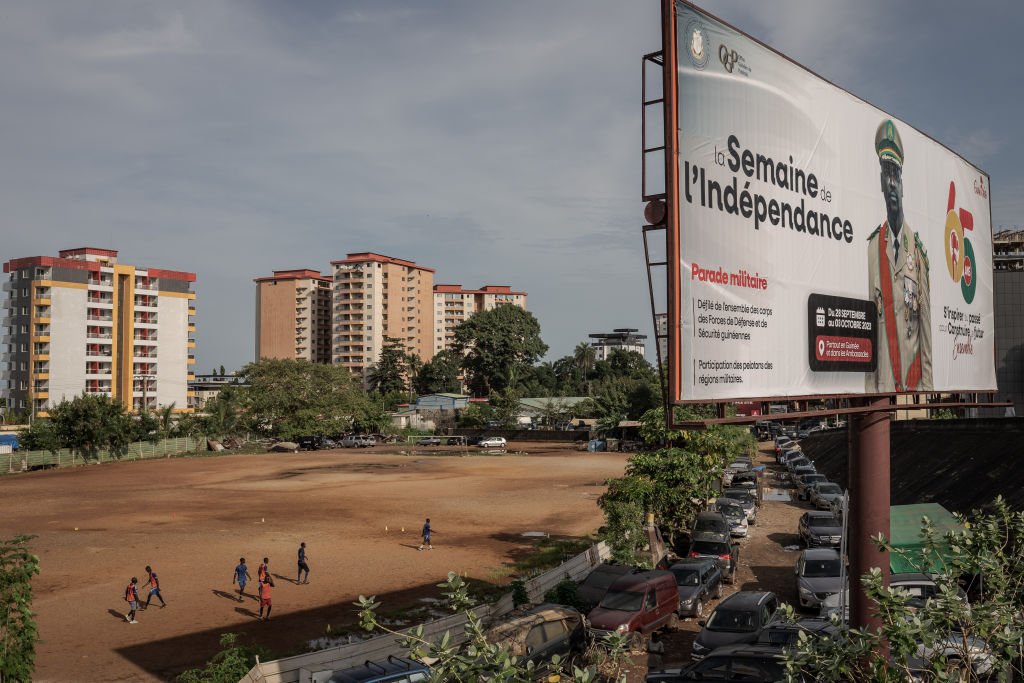
Guinée: le pays privé d’internet depuis 40 jours, des conséquences économiques considérables https://t.co/MYxbeb05aB pic.twitter.com/DgTygvSyTO
— RFI (@RFI) January 3, 2024
Expression
Restrictions placed on access to media
From 24th to 30th November 2023, Guinea’s media regulator placed restrictions on the broadcasting of at least four radio stations, without explanation, justification or notification. Access to social media platforms such as WhatsApp, Messenger, Facebook, Instagram and TikTok were also restricted from 24th November and could only be accessed via VPN. The Media Foundation for West Africa (MFWA) condemned the blocks. Further, the coalition of Human Rights Organisations in Guinea (Ong de Défense des Droits Humains en Guinée) denounced these disruptions as contravening international commitments to press freedom and the right to access information. Press freedom organisations in Guinea responded with a call for a media blackout in December 2023 to protest the ongoing repression of freedom of expression, which has been an issue of concern since the coup d'etat in 2021.
In early January 2024, news website Mosaiqueguinee.com was also blocked without any warning or information from the authorities. Accessing the website became impossible, without a VPN, from 2nd to 3rd January 2024
In #Guinea, journalists censored, expelled, arrestedhttps://t.co/RDkaJB5bMj
— CPJ Africa (@CPJAfrica) February 1, 2024
Guinean authorities should immediately reverse the suspension of Dépêche Guinée and the news website’s publishing director, Abdoul Latif Diallo, ensure journalists are not expelled or arrested over… pic.twitter.com/qcXRvRvXES
Dépêche Guinée news website and its director banned
On 17th January 2024, Guinea’s national media regulator, the High Authority of Communication (HAC), imposed a ban on the news website Dépêche Guinée and on its publishing director, Abdoul Latif, for allegations of defamation. On 15th January 2024, the website had published an article by Latif investigating suspicions of corrupt activities by government officials. After the article was published, Guinea’s Minister of Economy and Finance, Moussa Cissé, and the governor of the Central Bank of the Republic of Guinea, Karamo Kaba, expressed their dissatisfaction with the HAC. The HAC responded with a temporary ban on the news website for nine months and on its publishing director for six months. The HAC also accused Latif of a second offence, as he was banned in September 2023 on similar accusations. Under the ban, Latif “may neither create nor lend his services to a news organisation” for a period of six months. The Committee to Protect Journalists (CPJ) urged the Guinean authorities to end the censoring of media and free speech, and called on the government to immediately reverse the ban on Dépêche Guinée and its publishing director.
C'est un jour sombre pour la presse guinéenne. Le tribunal de Dixinn a décidé ce vendredi de condamner le journaliste et secrétaire général du Syndicat de la presse professionnelle, Sékou Jamal Pendessa. Il écope de 6 mois de prison dont 3 mois avec sursis et une amende de 500… pic.twitter.com/DJqD4Dss92
— Facely Konaté (@FacelyKonate1) February 23, 2024
Peaceful Assembly
Journalists detained during demonstration over media restrictions
On 18th January 2024, the Union of Press Professionals of Guinea (SPPG) and other stakeholders invited journalists to the Maison de la Presse de Guinée to demonstrate against the restrictions the military junta had imposed on the media. As journalists arrived, gendarmes came and arrested nine journalists, who were later released. They also detained SPPG general secretary, Sékou Jamal Pendessa, as a supporter of the demonstration and the alleged organiser. MFWA denounced the arrest and called for the journalist's immediate release. On 22nd January 2024, the Court of First Instance in Dixinn, Conakry charged Pendessa with organising an “unauthorised demonstration”. In response, the SPPG threatened a nationwide strike if the journalist was not released by 16th February 2024. The call to strike was supported by several political parties and civil society organisations in the country.
On 26th February 2024, security officers killed two persons in Guinea’s capital, Conakry, during a protest over the prosecution of Pendessa, the high cost of living, and media censorship. Barricades were set up by protesters, leading to clashes with the police. An 18-year-old student, Mamady Keïta, and 21-year-old Ibrahima Touré were killed by the security officers, and at least a dozen protesters were injured.
On 28th February 2024, Sekou Jamal Pendessa was released from prison after the appeal against his detention was granted. The MFWA issued a statement supporting the release, but reiterating calls for the Guinean government to end its repression of freedom of expression and the press.